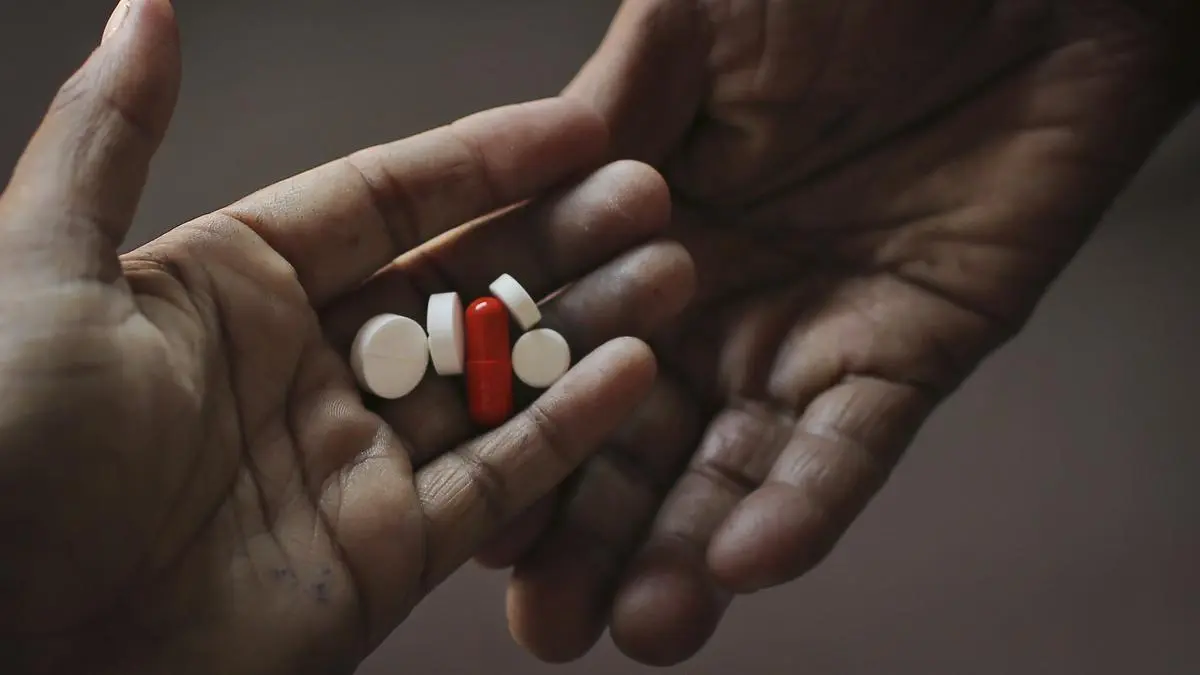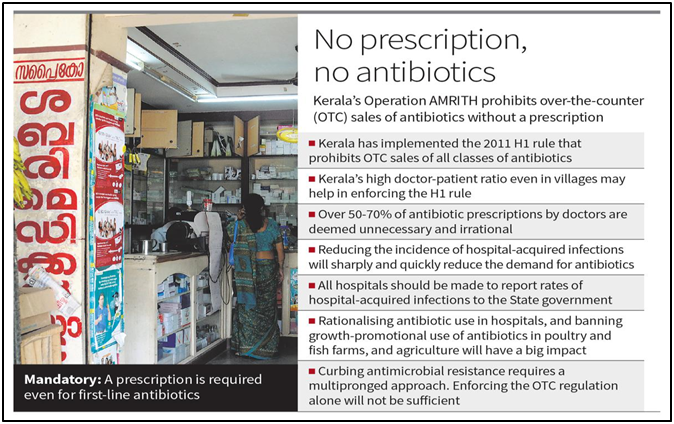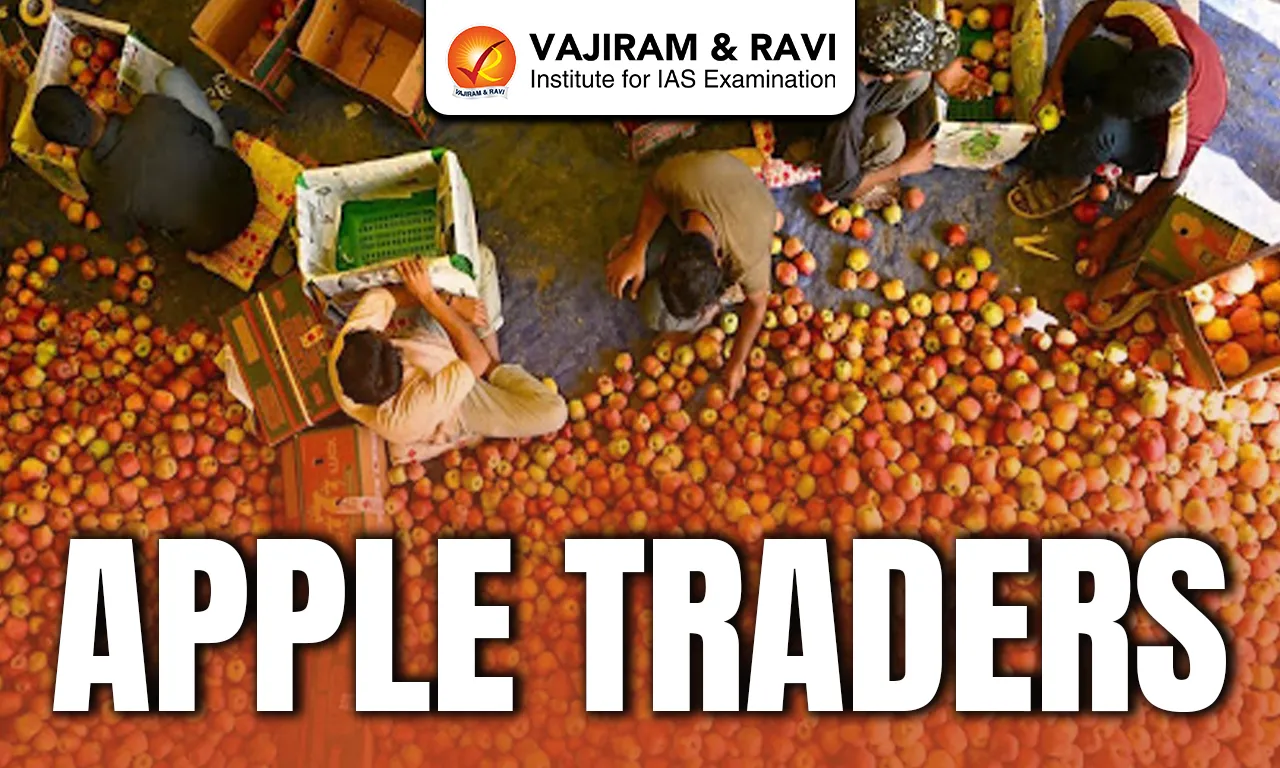What’s in Today’s Article?
- Why in News?
- What is Antimicrobial Resistance (AMR)?
- What Needs to be Done to Curb AMR?
- What are the H1 Rules and Their Implementation?
- What is AMRITH and What Facilitates its Implementation in Kerala?
Why in News?
- Despite a decade since the H1 rule’s announcement, no State government had adopted it until Kerala recently initiated Operation AMRITH (Antimicrobial Resistance Intervention for Total Health).
- The programme – Operation AMRITH – enforces the original H1 rule, mandating a doctor’s prescription for acquiring any class of antibiotics.
What is Antimicrobial Resistance (AMR)?
- About AMR:
- Antimicrobials – including antibiotics, antivirals, antifungals and anti-parasitics – are medicines used to prevent and treat infections in humans, animals and plants.
- AMR occurs when bacteria, viruses, fungi and parasites change over time and no longer respond to medicines (develops drug resistance).
- This makes infections increasingly difficult or impossible to treat, increasing the risk of disease spread, severe illness and death.
- They can spread from person to person or between people and animals, including from food of animal origin.
- The rapid global spread of multi and pan-drug resistant bacteria – “superbugs,” is particularly concerning.
- As a result, WHO recently identified AMR as a major public health threat.
- The main drivers of AMR include:
- The misuse and overuse of antimicrobials;
- Lack of access to clean water, sanitation and hygiene (WASH) for both humans and animals;
- Poor infection and disease prevention and control in health-care facilities and farms;
- Poor access to quality, affordable medicines, vaccines and diagnostics;
- Lack of awareness and knowledge; and
- Lack of enforcement of legislation.
- Issue of antibiotic prescriptions by doctors in India:
- It is critical to acknowledge that over 50-70% of antibiotic prescriptions by doctors are deemed unnecessary and irrational.
- One of the main reasons for unnecessary antibiotic usage is the unavailability of laboratory facilities to make a correct diagnosis of bacterial infections.
- The other main reason for unnecessary antibiotic prescriptions by doctors is the pressure from patients to receive antibiotics.
- Patients wrongly believe that a course of antibiotics is a quick remedy for a fever episode of any cause.
What Needs to be Done to Curb AMR?
- AMR is a socioeconomic problem and combating it requires a multipronged approach.
- The measures include –
- Improving public health infrastructure, sanitation facilities, and governance in order to decrease the transmission of infections and, therefore, the dependence on antibiotics.
- Reformations to physicians’ prescribing practices and mandating that hospitals report healthcare-associated infection rates.
- In order to reduce the spread of these infections, healthcare facilities must follow the correct standards for infection prevention.
- There must be a system where all hospitals report rates of hospital-acquired infections to the State governments and the data should be made public.
- Currently, all NABH (National Accreditation Board for Hospitals & Healthcare) hospitals in India collect this data every month and take measures to reduce hospital-acquired infections.
- But it is crucial that all hospitals follow suit and share the data with the States.
- Other essential measures, including rationalising antibiotic use in hospitals, banning the growth-promotional use of antibiotics in poultry farms, fish farms, and agriculture based on the already existing rules, are of paramount importance.
- Educating patients about the limitations of antibiotics and discouraging them from pressuring doctors for unnecessary prescriptions is vital.
What are the H1 Rules and Their Implementation?
- In 2011, the Indian government introduced the H1 rule to prohibit the over-the-counter (OTC) sales of antibiotics without a prescription, responding to the growing concern over AMR.
- However, due to the healthcare system’s heterogeneity across the country, the implementation of this rule faced significant challenges.
- In 2013, following the Chennai Declaration document and initiative by medical societies in India, the Indian government modified the rule to limit the OTC restriction to second-and third-line antibiotics.
- This modification was aimed to ensure that life-saving antibiotics remained accessible to the public, especially in remote areas of the country where doctors might not be readily available.
- However, strictly enforcing the OTC regulation without addressing the other issues, which are major drivers of antimicrobial resistance, may not help the cause.
What is AMRITH and What Facilitates its Implementation in Kerala?
- Kerala’s high doctor-patient ratio (even in villages), high literacy rate facilitates the enforcement of this rule.
- An informed populace is more likely to understand the importance of regulations and adhere to them, facilitating smoother execution and compliance.
- Kerala will do well if
- It demands hospitals to disclose the incidence of hospital-acquired infections.
- It supports and promotes the development of new antibiotics, diagnostics, and vaccines by entrepreneurs.
- Karnataka and Maharashtra-based startups have achieved remarkable progress in this domain.
- While it is highly commendable that Kerala is implementing the H1 rule to rein in AMR, it is unlikely to have a significant impact on drug-resistant infections in the immediate future.
- The effects of this initiative may take several years to manifest. However, it will foster a culture of respecting antibiotics and encourage further actions to combat AMR.
Q1) What is the Chennai Declaration related to?
Aim of the “Chennai Declaration” was to initiate efforts to formulate a national policy to control the rising trend of antimicrobial resistance (AMR), after consultation with all relevant stakeholders and to take all possible measures to implement the strategy.
Q2) What is the AMR Programme in India?
The Ministry of Health and Family Welfare launched the National Programme on Containment of Antimicrobial Resistance (AMR) to effectively combat AMR in India, and contribute towards the global efforts to tackle this public health threat.
Source: Kerala takes a pioneering step to curb antimicrobial resistance | WHO
Last updated on February, 2026
→ UPSC Notification 2026 is now out on the official website at upsconline.nic.in.
→ UPSC IFoS Notification 2026 is now out on the official website at upsconline.nic.in.
→ UPSC Calendar 2026 has been released.
→ UPSC Final Result 2025 is expected to be released in the second week of April 2026.
→ Check out the latest UPSC Syllabus 2026 here.
→ Join Vajiram & Ravi’s Interview Guidance Programme for expert help to crack your final UPSC stage.
→ UPSC Mains Result 2025 is now out.
→ UPSC Prelims 2026 will be conducted on 24th May, 2026 & UPSC Mains 2026 will be conducted on 21st August 2026.
→ The UPSC Selection Process is of 3 stages-Prelims, Mains and Interview.
→ Prepare effectively with Vajiram & Ravi’s UPSC Prelims Test Series 2026 featuring full-length mock tests, detailed solutions, and performance analysis.
→ Enroll in Vajiram & Ravi’s UPSC Mains Test Series 2026 for structured answer writing practice, expert evaluation, and exam-oriented feedback.
→ Join Vajiram & Ravi’s Best UPSC Mentorship Program for personalized guidance, strategy planning, and one-to-one support from experienced mentors.
→ Check UPSC Marksheet 2024 Here.
→ UPSC Toppers List 2024 is released now. Shakti Dubey is UPSC AIR 1 2024 Topper.
→ Also check Best UPSC Coaching in India





















